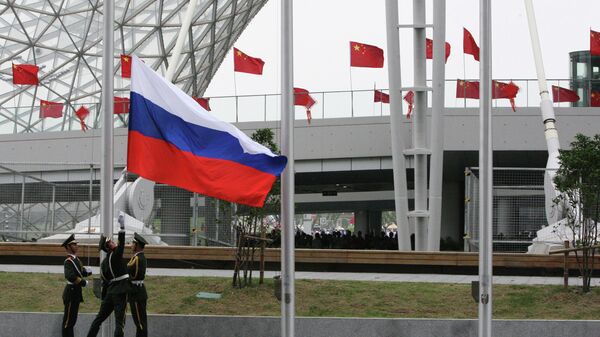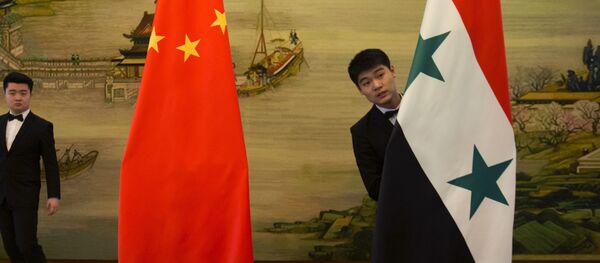MOSCOW (Sputnik) — Beijing is not expected to expand its role in the Syrian settlement and mediate resumption of the US-Russian cooperation over Syria during its presidency at the UN Security Council (UNSC) in July, as it would go directly against China's interests, experts told Sputnik.
INCREASED ROLE IN SYRIA NOT IN BEIJING’S INTERESTS
China has been repeatedly criticized for its inactive fight against terrorism and reluctance to expand its role in the Syrian settlement from providing training to the Syrian government troops to conducting airstrikes against terrorists. However, the country is unlikely to use its one-month UNSC presidency as a momentum to step up its anti-terrorism fight and put the pressing issue of the Syrian settlement on the agenda to impress the other council members, Shin Un, the former minister in Permanent Mission of South Korea to the United Nations and ex-Korean ambassador in the United States, argued.
"It goes directly against the matter of interest to China. It [the country] does not have to matter in the affair. That's too complex. China doesn't have to be more strongly involved [in Syria] and make stronger commitment to that. It is my sense," Shin, who is currently the president of the Institute for National Security Strategy (INSS), explained, asked if China would put on the UNSC agenda the issue of Syrian settlement.
"Terror in Syria is a conflict of interests between the two. As we have seen in the past, the two countries will try to save [the memorandum] as they face each other and try to moderate their positions," Shin said.
"The last thing the Chinese would like to do is play a mediator between Russia and the United States, but I think China has strong relationships with both of a different nature — with Americans it is more trade and economy, with Russia it's more the regional politics and security. I am not sure the Chinese would like to mediate between Russia and America on the issue in Syria. The Chinese don't do that," Saran argued, adding that so far China's response to terrorism was "ambivalent and ambiguous."
OTHER TOPICS ON CHINA’S AGENDA
According to the experts, other acute issues that could be raised at the Security Council in July are tensions in the Middle East and the Persian Gulf, as well as the international community's attempts to stop provocations from the North Korea.
"Under the Chinese presidency, clearly you will see two or three themes, which will be raised. The first will be about terror and I am sure there will be some accidents, which will draw the attention of the world to terror — the Middle East, and, of course, the tensions in the Gulf could be another issue, which may be raised," Saran, who is a vice president at the Observer Research Foundation in India, said.
"Maybe, the United States will continue to push China when cases of North Korean provocations happen again. You should do more as you are presiding this council," Shin noted.
Overall, both experts agreed that China’s UNSC presidency would not bring any fruitful results for the country’s interests, as was the case with past presidencies of the other permanent members of the Security Council — France, Russia, the United Kingdom, and the United States.
"We have seen many cases of the so-called P5 countries [five permanent members of the UNSC] presiding the Council. China is a very interest-oriented country, so [I am] without any substantive expectations for the benefit of the country. I think China will just enjoy this presidency of the Council," Shin said.
The UNSC presidency is a "thankless job," for which Beijing is "likely to receive criticism and no praise," Saran outlined.





